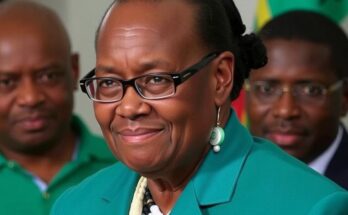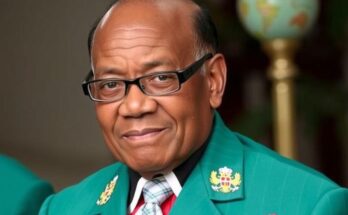Duma Boko’s inauguration as president of Botswana marks the first instance of an opposition party assuming power after defeating the long-governing BDP. The victory reflects a desire for social change among the populace, but concerns persist regarding the UDC’s pro-business agenda and its potential to fulfill electoral promises. The article critiques the portrayal of the UDC as a social democratic force, arguing for the necessity of a revolutionary workers’ movement to combat systemic inequality and empower the marginalized in Botswana.
In a historic shift for Botswana, on November 1, Duma Boko of the Umbrella for Democratic Change (UDC) was inaugurated as the country’s president, marking the first time in six decades that an opposition party has assumed power. This monumental change came after the UDC won 35 out of 61 seats in the National Assembly during the October elections, effectively dismantling the long-standing rule of the Botswana Democratic Party (BDP), which had governed since independence in 1966. This electoral shift reflects a desire for significant social change, particularly among disenfranchised workers, youth, and rural populations, who have suffered under BDP governance marked by rising inequality and economic challenges exacerbated by global crises.
The political landscape in the region suggests that a broader wave of opposition to entrenched ruling parties is taking root, as evidenced by the declining fortunes of the African National Congress (ANC) in South Africa and the continued dissatisfaction with the South West Africa People’s Organisation (SWAPO) in Namibia. Additionally, Mozambique’s FRELIMO party has faced charges of electoral manipulation, resulting in violent protests. This rise of opposition reflects a growing frustration with decades of governance that have failed to address social and economic grievances among the masses.
Internationally, organizations such as the New Anti-Capitalist Party (NPA) and the publication International Viewpoint appear to promote the idea that pro-business entities like the UDC represent viable alternatives to traditional ruling parties, potentially diverting attention from the pressing need for socialist change. Analyst Paul Martial’s commentary on the UDC paints an optimistic portrait of the party’s social democratic aspirations, highlighting its focus on youth employment and health care proposals aimed at addressing societal disparities.
However, this portrayal overlooks the UDC’s realignment with capitalist interests. The party’s electoral promises regarding job creation and economic diversification stand in stark contrast to its pro-business agenda, which prioritizes attracting foreign investment and deregulating the market to facilitate corporate profit. Boko, representing a faction of the elite, aims to leverage Botswana’s resources while maintaining the status quo that empowers the wealthy.
Critically, Boko’s commitment to expanding Botswana’s relations with mining corporations and military cooperation raises concerns regarding the government’s prioritization of corporate interests over pressing social needs. His administration’s rhetoric suggests a continuation of neoliberal policies that do not address the underlying issues of poverty and inequality endemic to the nation’s socio-economic structure.
The characterization of the UDC as a social democratic force is misleading as it aligns with a broader pattern observed in various global contexts, where parties claiming to represent the left fail to challenge imperialism and capitalism effectively. Historical analysis indicates that the trajectory of Botswana and similar nations demonstrates that collaboration with imperialist interests leads not to progressive transformation, but to further entrenchment of capitalist exploitation and inequality.
Ultimately, the call for Permanent Revolution, rooted in a commitment to uniting the struggles of the working class against both local elites and imperialism, presents a more coherent path toward achieving genuine social and economic reform. The current situation in Botswana serves as a reminder that political shifts alone do not equate to meaningful change; only a dedicated and independent workers’ movement can confront the entrenched powers of capitalism and imperialism.
The political developments in Botswana, particularly the recent election of Duma Boko as president, signify a pivotal moment in the country’s history. The UDC’s victory over the Botswana Democratic Party (BDP) not only marks the end of a 58-year regime but also reflects a broader regional trend of opposition against long-standing ruling parties. The electoral outcome is seen as a response to widespread discontent regarding socioeconomic conditions, rising inequality, and the impacts of international geopolitical tensions and austerity measures. The article critically examines the UDC’s pro-business agenda, contrasting it with promises made during the election and highlighting the historical context of Botswana’s political landscape.
In conclusion, the election of Duma Boko and the UDC in Botswana represents a significant shift in political power but is ultimately characterized by a continuity of pro-business interests that risks sidelining genuine social reform. While the UDC campaigns on promises of improving social conditions, its alignment with capitalist agendas raises skepticism about the viability of such changes. A true path to progress necessitates the establishment of a robust workers’ movement committed to challenging both local bourgeois powers and imperialist exploitation. Only through a strategy of Permanent Revolution can the deep-seated inequalities within Botswana be truly addressed and rectified.
Original Source: www.wsws.org




